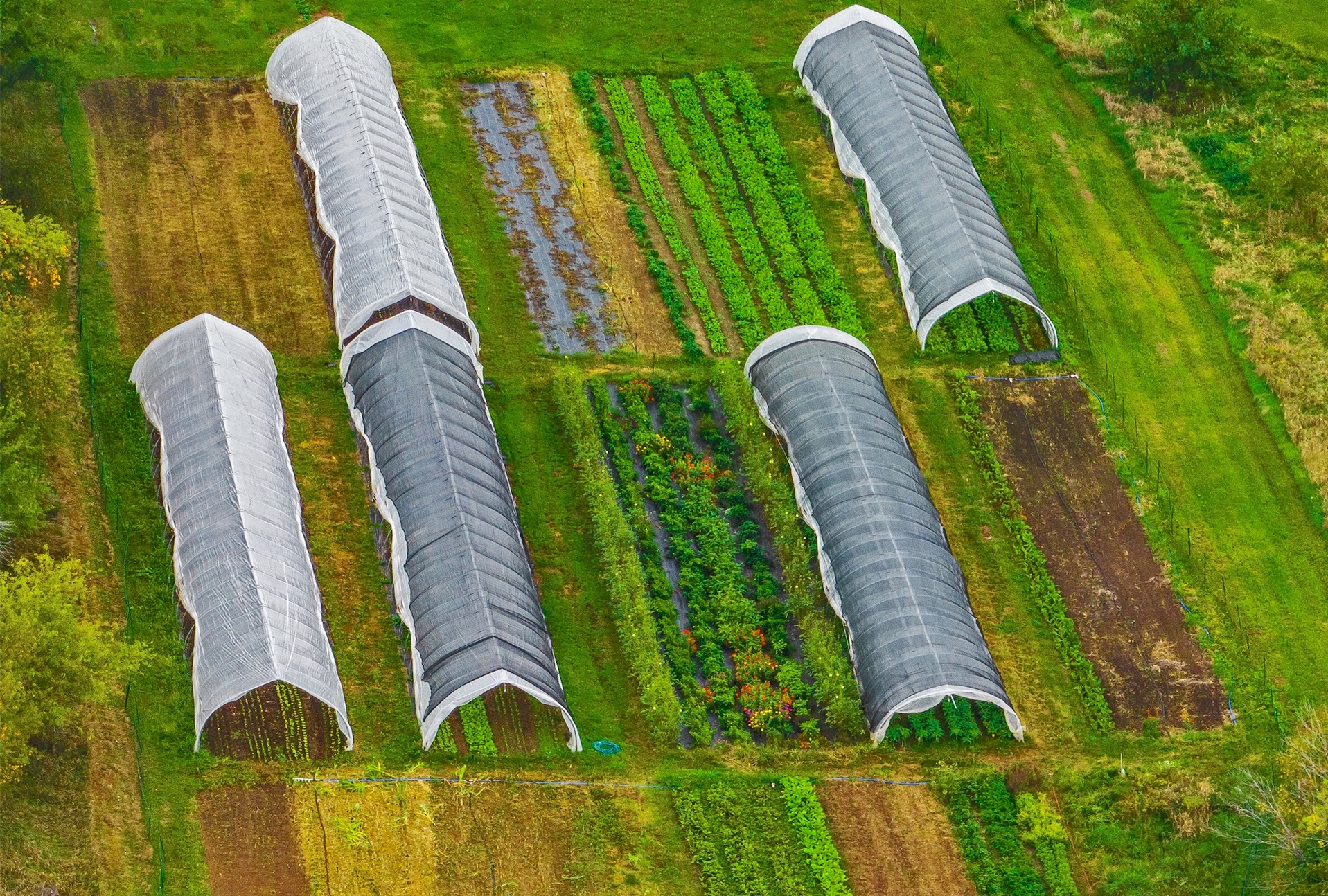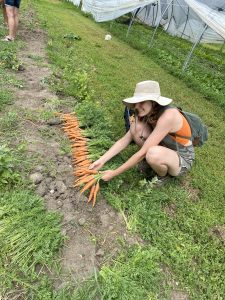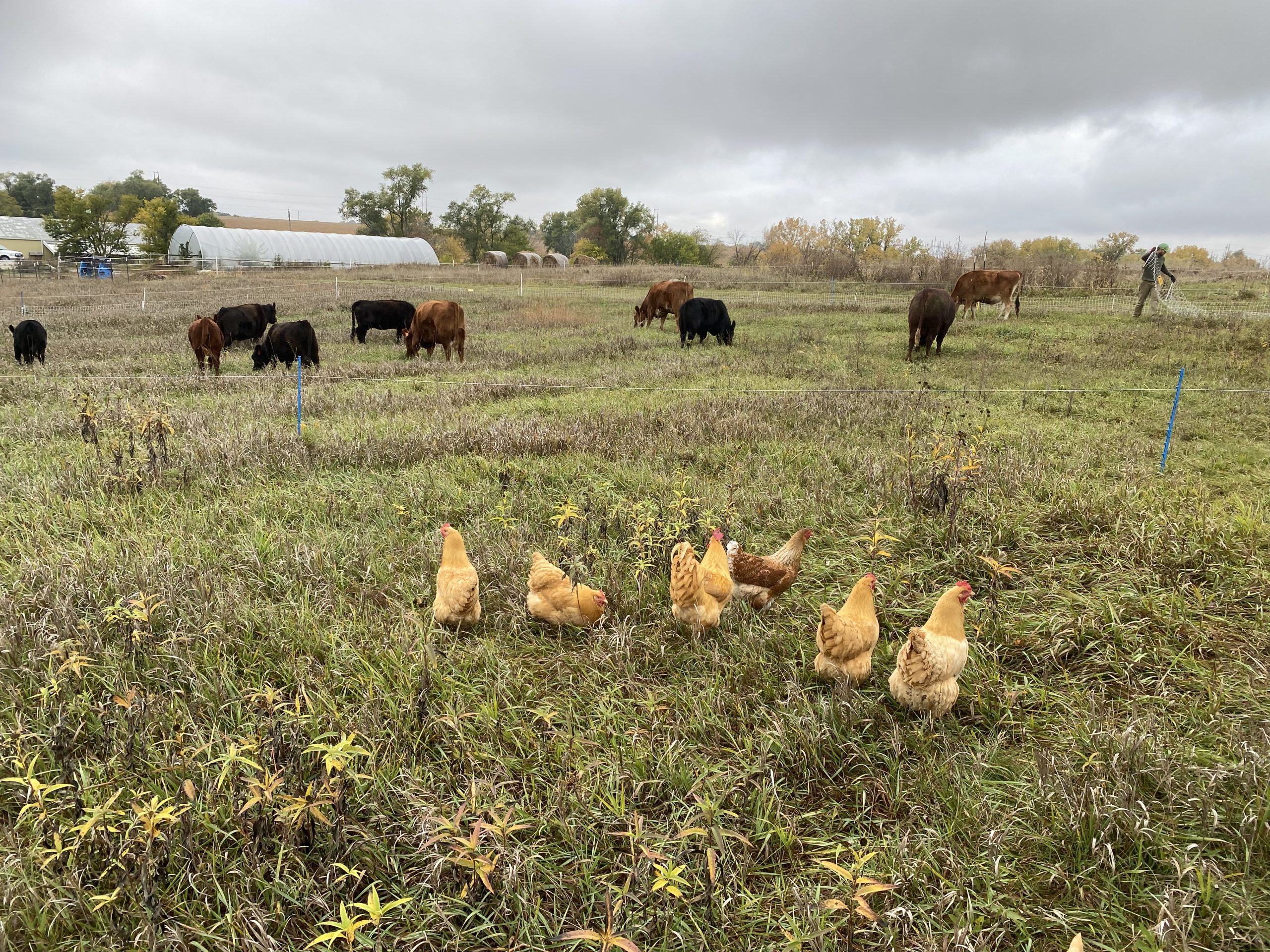
Online Certificate in Regenerative Organic Agriculture
Starting in the spring semester, students interested in regenerative organic agriculture will be able to enroll in a fully online certificate program at MIU and will be able to complete their certification in as little as five months.

Students will learn the principles of ecologically sound and economically viable food production systems that nourish local communities.
Throughout the program, students will acquire versatile skills they can apply to any agricultural operation, including regenerating soils, optimizing water efficiency, enhancing biodiversity, and reducing costs. The curriculum covers horticulture sciences, plant system design, animal husbandry, organic mushroom cultivation, and comprehensive farm planning and business management.
And under the mentorship of expert faculty, students design their own regenerative agriculture project plan, applying their newfound knowledge.
Students have the option of enhancing their experience with an additional month-long course on campus, offering hands-on instruction at MIU’s organic, biodynamic farm just north of campus.
This online program provides a condensed alternative to the long-standing nine-month on-campus “Field-Training Certificate in Regenerative Organic Agriculture” at MIU.
Regenerative organic agriculture began at MIU in 2017 with this on-campus certificate, which was initially offered by the Sustainable & Regenerative Living department. By 2021, agriculture had its own dedicated department. The Regenerative Organic Agriculture (ROA) department now offers a range of programs, including a bachelor’s (online and on campus), a bachelor’s with a specialization in Regenerative Organic Agriculture (online and on-campus), and a master’s (online) in Regenerative Organic Agriculture.
Regenerative organic agriculture is now among MIU’s fastest-growing areas, with enrollment in ROA programs increasing 233% this fall.
“It’s not just about trying to get a job”
MIU’s agriculture programs attract a unique demographic of students, according to Tyler Wilfley, program director and instructor in the department.

“Our students tend to have a very powerful underlying ‘Why?’ in terms of what they really want to do,” Wilfley explains. “It’s not just about trying to get a job — they want to live a certain way. They like the idea of taking responsibility for their impact.”
“Covid kind of woke people up to the reality of how fragile our food supply chains can be,” Wilfley adds. “Those trends have led more people to be interested in pursuing this type of lifestyle and creating a business out of it.”
Young people who wish to do this type of work face a major barrier, Wilfley said — access to capital. “We teach them how to create a plan of action in terms of surveying a landscape, coming up with a good plan for it, and then being able to attract investors for that plan,” he said.
Addressing the agricultural crisis
Regenerative organic agriculture aims to address the unfolding crisis in agriculture. Its symptoms are many and varied — collapsing soil health, plateauing crop yields, environmental degradation, and biodiversity loss; rising hunger, poverty, and obesity; overdependence on chemical fertilizer and pesticides; poor quality (even unsafe) food; exploitative labor and animal practices; corporate dominance; and overall lack of resilience.
Regenerative organic agriculture is a rapidly growing market in the US and worldwide. In 2022, the global regenerative agricultural market was estimated at $8.1 billion, projected to more than double to $21.03 billion by 2029.

Thank you to Kari Bedi for her contributions to this story.
